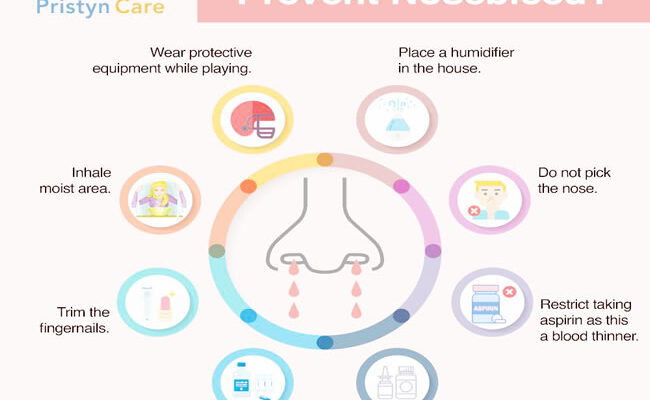

During harmattan, bleeding from the nose, either spontaneous or induced by nose picking or trauma is more common. Indeed, harmattan is a season to expect more nasal health issues, because dust, a major component of the season is an identified factor that aggravates allergic reactions.
Nose bleeding, medically called epistaxis, is one of the major challenge people face during this season and this may be caused by mild trauma to the nose which unleash a scary amount of nose bleeding as a result of fragile blood vessels within the nose, which are extra thin during the harmattan season and ready to bleed on contact.
The inside of your nose is full of tiny, delicate blood vessels that can become damaged and bleed relatively easily. Common causes of nosebleeds includes picking your nose. blowing your nose very hard, minor injury to your nose, changes in humidity or temperature causing the inside of the nose to become dry and cracked.

This kind of nose bleed can simply be stopped by plugging the nostrils with cotton wool and elevating the head. Nosebleeds can be frightening, but they aren’t usually a sign of anything serious and can often be treated at home.
Nosebleeds are common and while the cause may be unclear at first, most cases are minor and can be managed from home.
Other immediate causes of nosebleeds include trauma to the nose from an injury, deformities inside the nose, inflammation in the nose, or, in rare cases, intranasal tumors. Any of these conditions can cause the surface blood vessels in the nose to bleed.

During a nosebleed, blood flows from one or both nostrils. It can be heavy or light and last from a few seconds to 15 minutes or more and can have causes that aren’t due to underlying disease.

Bleeding may be heavier or last longer if you take anticoagulants, have a blood clotting disorder or have high blood pressure.
Occasionally, bleeding can come from the blood vessels deeper within the nose. This can be caused by a blow to the head, recent nasal surgery and hardened arteries.
How to stop nosebleed: Sit down and firmly pinch the soft part of your nose for at least 10 to 15 minutes, lean forward and breathe through your mouth to drain blood into your nose instead of down the back of your throat.
READ FROM ALSO NIGERIAN TRIBUNE








